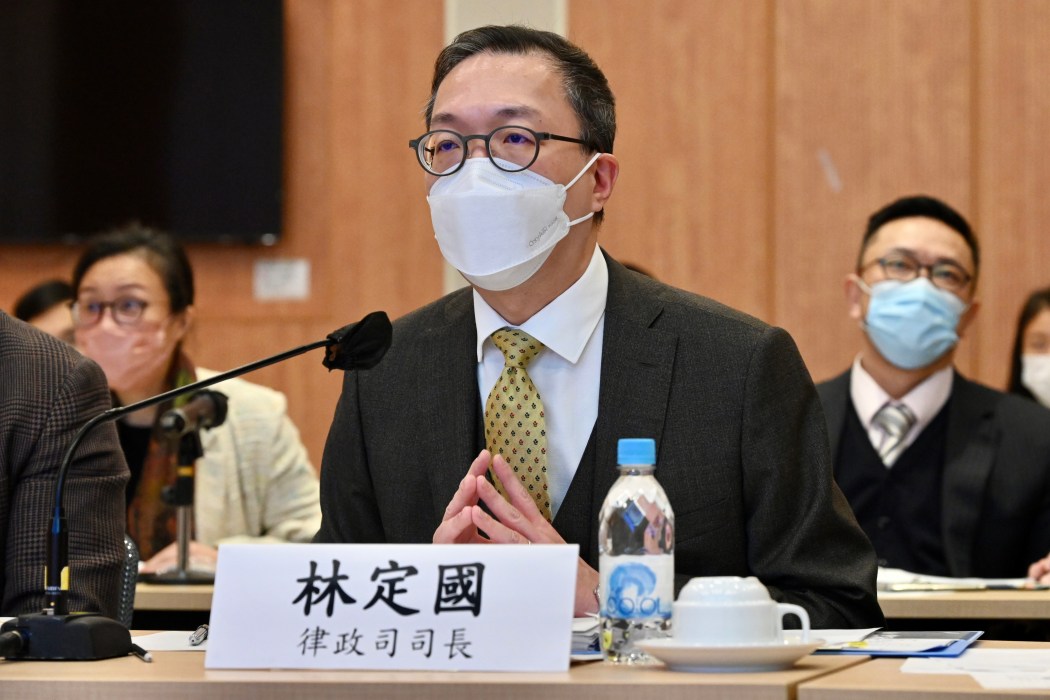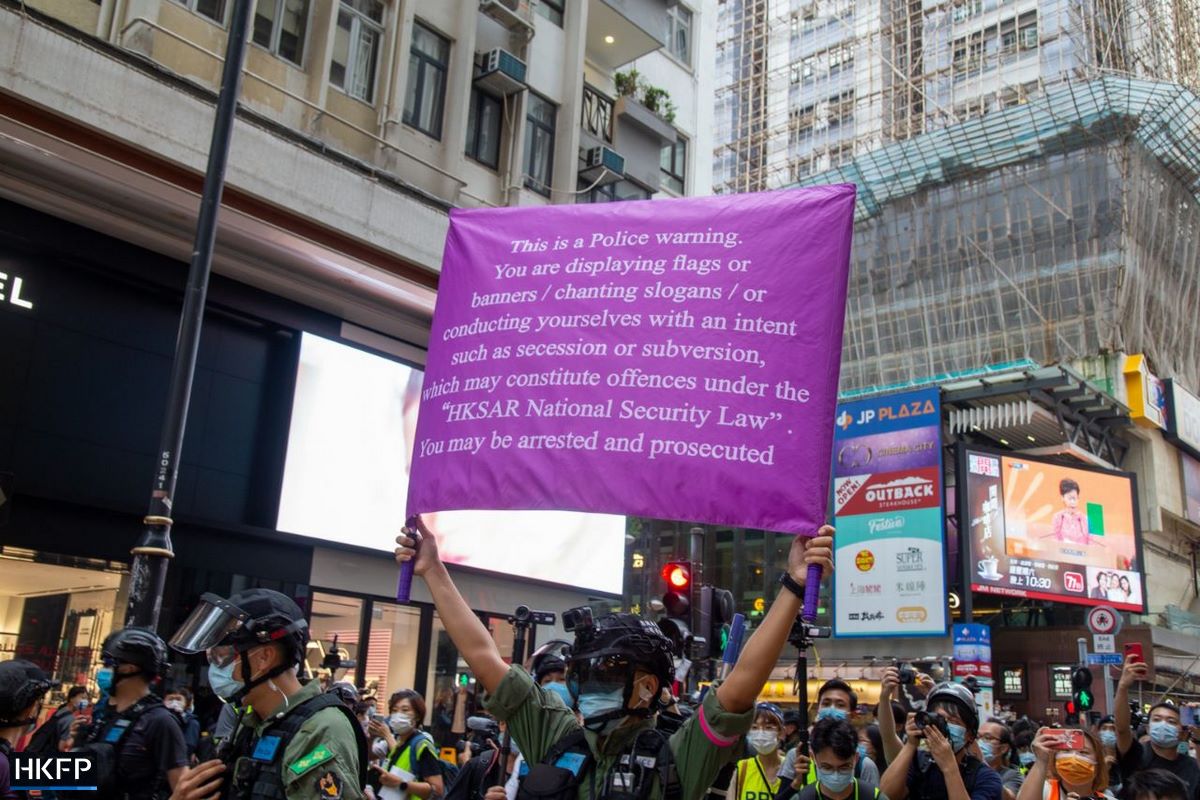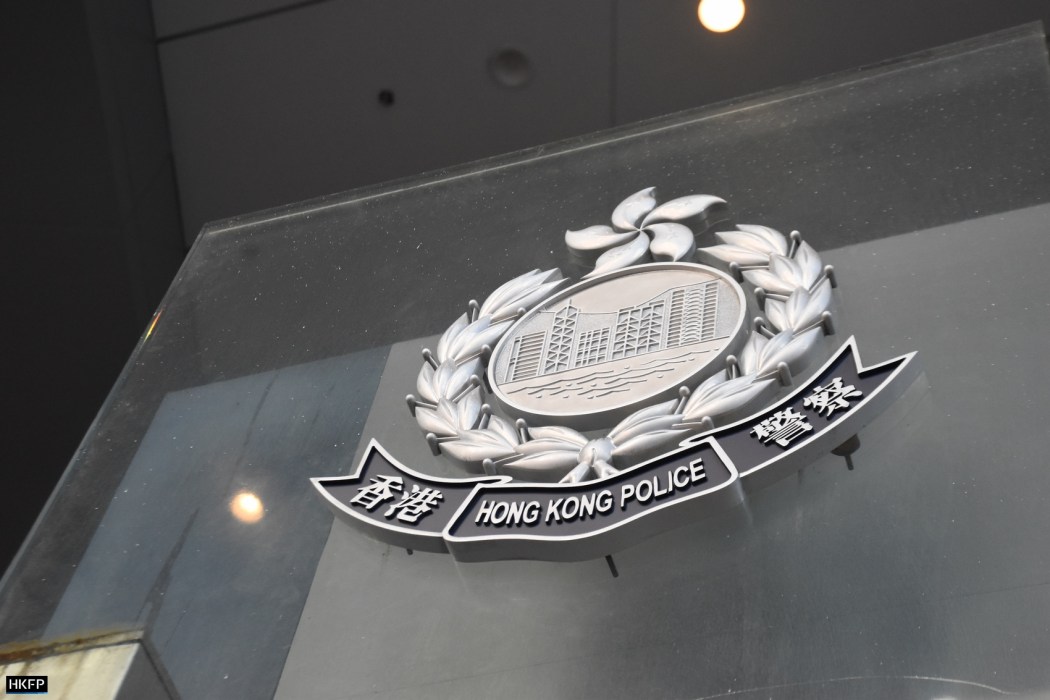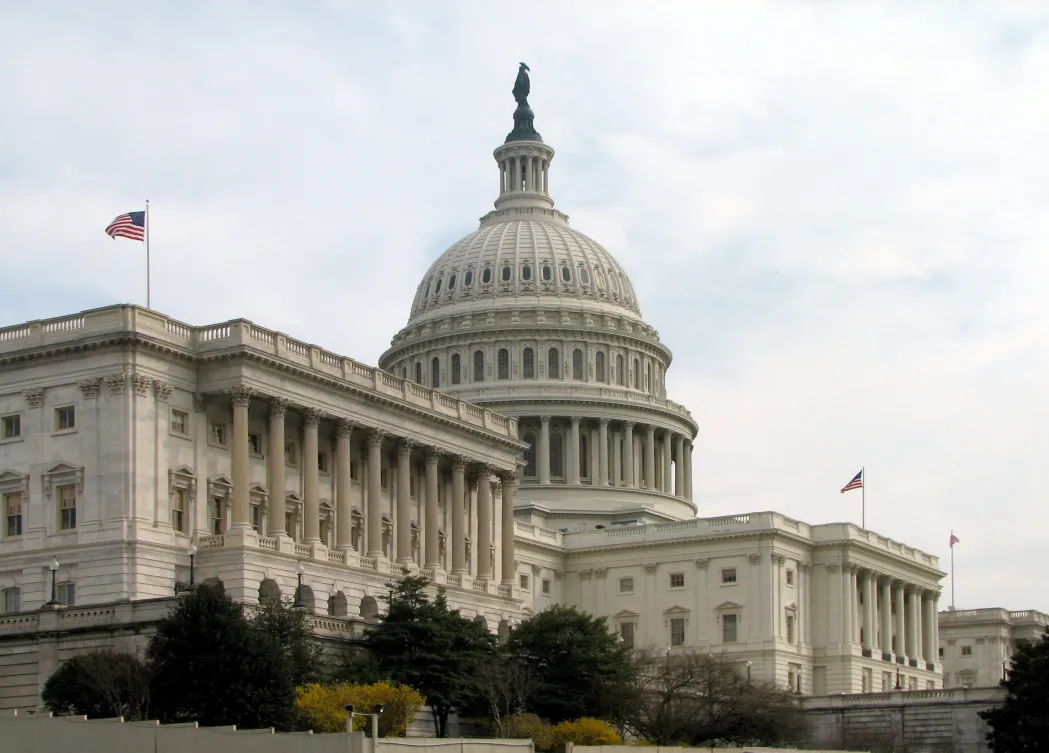The number of arrests and convictions since the implementation of the national security law in Hong Kong is “very small,” the city’s justice chief has said.

Speaking on a Commercial Radio programme on Sunday, Secretary for Justice Paul Lam said fewer than 250 people had been arrested over national security offences.
“For [national security law] convictions, it is only around 20 [people], not more than 30,” Lam said.
“Even if it’s other national security-related offences, it’s not over 70,” Lam said. The city’s colonial-era sedition law was revived in March 2020 and has been used to charge members of a union that published children’s books that were said to have “indoctrinated” readers, as well as to charge editors of former news outlet Stand News, who are on trial accused of conspiring to publish seditious publications.
The sedition law, which has seen more frequent use than the national security law, is separate from the Beijing-enacted legislation. Offenders of both, however, face a higher bail threshold and are often remanded in custody after being charged.

“Hong Kong has a population of seven million. Comparatively, I think everyone would… agree that only a very small number of people have actually been affected,” Lam added.
Beijing imposed national security legislation upon Hong Kong in June 2020 following a year of pro-democracy protests and unrest sparked by a controversial extradition bill that would have allowed the transfer of fugitives to mainland China to stand trial.
The law criminalised subversion, secession, collusion with foreign forces and terrorist acts, which were broadly defined to include disruption to transport and other infrastructure. The move gave police sweeping new powers, alarming democrats, civil society groups and trade partners, as such laws have been used broadly to silence and punish dissidents in China. However, the authorities say it has restored stability and peace to the city.
A stricter bail threshold is applied to national security suspects, under which most people arrested have been denied bail and remanded in custody. Suspects face hand-picked judges, and may see up to life in prison.

The city’s largest national security trial, involving 47 democrats – among them ex-lawmakers, former district councillors and activists – charged with conspiracy to commit subversion, is currently underway.
At the time that the security law was implemented, then-chief executive Carrie Lam said the legislation “only targets a very small minority of people who breach the law” while protecting “the overwhelming majority of Hong Kong citizens in exercising their legitimate rights and freedoms.”
In response to HKFP, the Security Bureau said that 249 people have been arrested on suspicion of endangering national security. Among the 67 people convicted or awaiting sentencing, 29 of them were prosecuted under Beijing’s national security law.

Authorities did not specify the offences in respect to the remaining 38.
‘Full of lies’
Paul Lam added that while some countries “expressed understanding that the national security law has brought positive effects” to Hong Kong, there were others making “inaccurate accusations.”
“Their motive maybe is to… damage Hong Kong’s role in the development of the nation,” he claimed. “Some Western countries – I can name those such as the United States – keep using the national security law as a basis to keep trying to get at us, whenever they see an opportunity.”
Their “inaccurate statements” are “full of lies,” he said, adding that national security arrests and convictions involved incidents that were more than mere discussion about pursuing freedom and democracy.

His comments came days after the US released its Hong Kong Policy Act Report, an annual publication on recent developments in Hong Kong. The report stated that Beijing and Hong Kong authorities have “continued to use ‘national security’ as a broad and vague basis” to undermine rights and freedoms.
In a lengthy statement on Saturday, the Hong Kong government condemned the US’s report and defended the national security law and the city’s electoral overhaul, which ensures only those deemed “patriots” can lead the city.
“We seriously reiterate that all law enforcement actions taken by Hong Kong law enforcement agencies under the [security law], or indeed any local laws, are based on evidence… and have nothing to do with their political stance, background or occupation,” the statement read.
Support HKFP | Policies & Ethics | Error/typo? | Contact Us | Newsletter | Transparency & Annual Report | Apps
Help safeguard press freedom & keep HKFP free for all readers by supporting our team
























